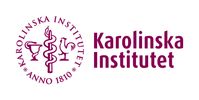Heart failure drugs beneficial even in presence of kidney disease
[PRESS RELEASE, 23 MAY 2015] A novel study from Karolinska Institutet in Sweden suggests that RAS-antagonists, common drugs for patients with heart failure, may benefit also patients who have concomitant kidney disease, a group previously not studied. The findings are being presented today at the annual congress of European heart failure specialists in Seville, Spain.

These drugs have proven effect in heart failure, but patients with kidney disease were excluded from clinical trials due to fear of kidney complications. While kidney complications are still a potential concern, this new study, which is presented at the annual congress of the European Society of Cardiology Heart Failure Association, and published concurrently in the European Heart Journal, suggests that the net effect may be beneficial.
In the current study, a Swedish team comprising researchers at Karolinska Institutet, Linköping University, Södersjukhuset (Stockholm South General Hospital), and Karolinska University Hospital analysed data from 24,000 patients from the nationwide Swedish Heart Failure Registry (SwedeHF). Patients with heart failure and chronic kidney disease who were treated with RAS-antagonists (ACE-inhibitors or angiotensin receptor blockers) had better survival than un-treated patients. The difference persisted after adjustment for a large number of other factors, such as patient age and measures of general health, and the final decrease in mortality was 24 percent. The reduction in mortality was similar to that in patients without kidney disease which was in turn similar to that in randomized trials.
”This study was large and rigorous but cannot prove that RAS-antagonists are beneficial”, says Dr Lars Lund, of Karolinska Institutet, who led the study. ”It provides a rationale for performing large-scale randomized trials with this inexpensive category of drugs for the common combination of heart failure and kidney disease. Indeed, Swedish health care and national population registries provide an ideal setting for a novel concept, so called registry-randomized trials.”
The work was financed by the Swedish Research Council, The Swedish Heart-Lung Foundation, the Stockholm County Council and the Swedish Association of Local Authorities and Regions.
Publication: 'Association between renin-angiotensin system antagonist use and mortality in heart failure with severe renal insufficiency - a prospective propensity score-matched cohort study', Lars H Lund, Lina Benson, Ulf Dahlström, Magnus Edner, European Heart Journalx, 23 May 2015.
Contacts
For further information, please contact:
Lars H. Lund, Consultant, PhD, Associate Professor
Department of Medicine, Solna, Karolinska Institutet (http://ki.se/en/meds/startpage)
Mobile: +46 (0)70-441 56 87
E-mail: Lars.Lund@ki.se
Contact the Press Office and download images (http://%20ki.se/pressroom)
Images

Karolinska Institutet (http://ki.se/english) is one of the world's leading medical universities. Its vision is to significantly contribute to the improvement of human health. Karolinska Institutet accounts for over 40 per cent of the medical academic research conducted in Sweden and offers the country´s broadest range of education in medicine and health sciences. The Nobel Assembly at Karolinska Institutet selects the Nobel laureates in Physiology or Medicine.
Subscribe to releases from Karolinska Institutet - English
Subscribe to all the latest releases from Karolinska Institutet - English by registering your e-mail address below. You can unsubscribe at any time.
Latest releases from Karolinska Institutet - English
New method reveals how the brain and inner ear are formed3.4.2025 20:00:00 CEST | Pressmeddelande
Researchers at Karolinska Institutet have developed a method that shows how the nervous system and sensory organs are formed in an embryo. By labelling stem cells with a genetic ‘barcode’, they have been able to follow the cells’ developmental journey and discover how the inner ear is formed in mice. The discovery, published in Science, could provide important insights for future treatment of hearing loss.
Fluoride in drinking water is associated with impaired childhood cognition7.3.2025 15:30:00 CET | Pressmeddelande
Elevated concentrations of fluoride can occur in well water, and in some countries, it is added to drinking water to counteract caries in the population. A study from Karolinska Institutet in Sweden now supports a few previous studies indicating that exposure to fluoride during the fetal stage or early childhood may impair cognition in children. The study is published in the journal Environmental Health Perspectives.
Children with ARFID face increased risk of disease17.2.2025 17:00:00 CET | Pressmeddelande
Children with avoidant restrictive food intake disorder (ARFID) have an elevated risk of developing psychiatric and physical conditions, a new study from Karolinska Institutet published in JAMA Pediatrics reports. The study highlights the importance of early identification to improve care of these children.
Preterm babies receive insufficient pain management27.1.2025 15:29:17 CET | Pressmeddelande
A large proportion of babies born very early need intensive care, which can be painful. But the healthcare system fails to provide pain relief to the full extent. This is shown by the largest survey to date of pain in neonatal care, now published in the journal Pain.
New study paves way for immunotherapies tailored for childhood cancers20.1.2025 17:00:00 CET | Pressmeddelande
Researchers at Karolinska Institutet and the Astrid Lindgren Children’s Hospital in Sweden have determined how children’s immune systems react to different kinds of cancer depending on their age. The study, which is published in the journal Cell, reveals significant differences between the immune response of children and adults, and has the potential to lead to new tailored treatments for children with cancer.
In our pressroom you can read all our latest releases, find our press contacts, images, documents and other relevant information about us.
Visit our pressroom